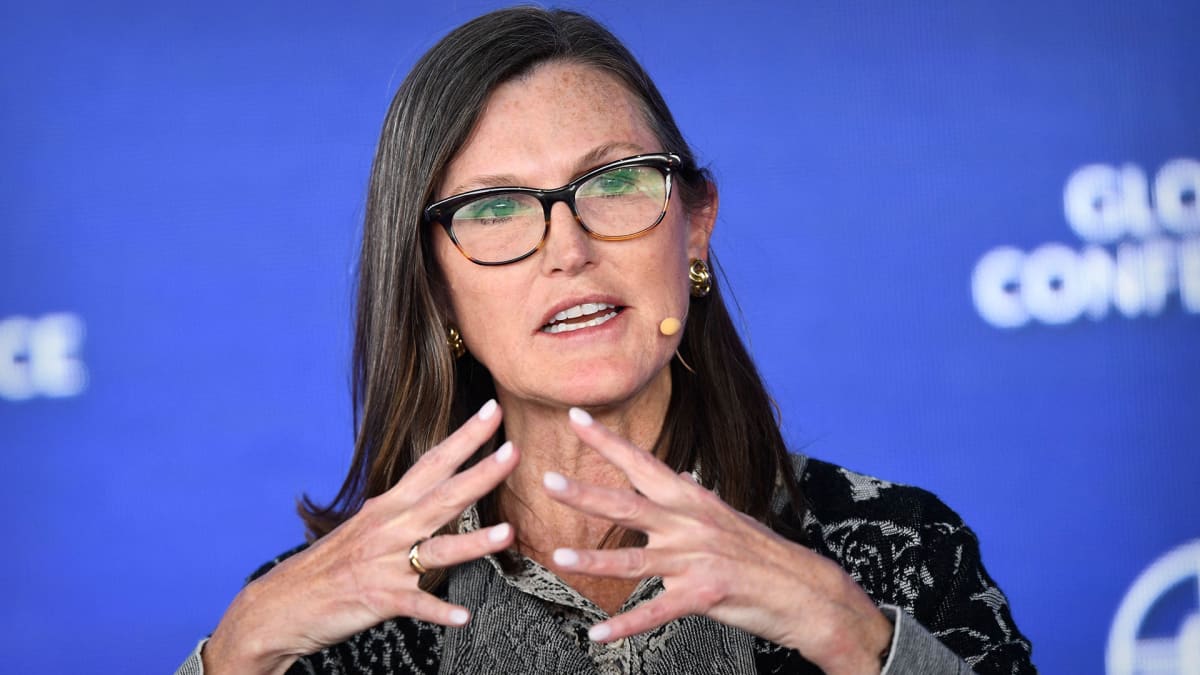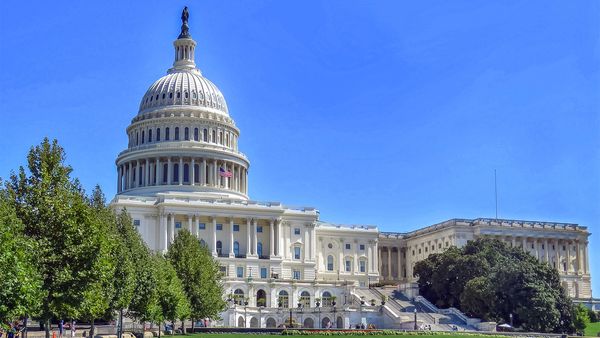
Ark Invest's Cathie Wood hosted a podcast during which she brought up a fear about the U.S. as the "reserve currency of the world."
The subject came up during a conversation with Paul Grewal, chief legal officer at Coinbase (COIN) that was posted to YouTube on April 13.
DON'T MISS: Cathie Wood Backs Out of One Investment She Previously Praised
"So Paul," Wood said, in a discussion about the regulatory landscape in the U.S. and internationally. "Do you think there is sort of a higher level reason for all of this regulatory pushback? Is this coming from on high? The U.S. is the reserve currency of the world."
"Could there be a fear of losing that status, or even a fear of capital flight in some sense?" she asked.
Grewal said he believes the consequences could be as serious as Wood suggested.
"I do think it's important to be thoughtful and selective and understanding of the different types of regulatory pressure that we're facing here in the United States," he said.
Grewal then discussed the relationship of government regulations to cryptocurrency.
"For example, I would distinguish between the clear coordination that we're seeing in denying basic banking services to crypto firms big and small, established and innovative, here in the United States, that is I think all but operating in plain sight," Grewal said.
"If you look at the statements coming from the White House and elsewhere on that very specific issue, I think apart from the banking question we're seeing the SEC and others undertake their own efforts to assert jurisdiction and grab control of the primary role in regulating crypto in the U.S.," he continued.
"I don't know that that's as much of a reflection of deep coordination as it is jurisdictional primacy and a fight to establish one agency as the primary regulator over all others," he said.
On the podcast, Grewal had more to say about the worldwide regulatory environment.
The United States is in a very precarious position as we look out across the regulatory landscape not just here in the United States but around the world.
I think to understand that it's important to understand not only what's happening with the SEC, what's happening with the Treasury Department and what's happening at the state level, but also to compare and contrast that with what we're seeing in jurisdictions outside the United States and all over the world.
The reality is that even as we continue to struggle to have basic rules here in the United States governing crypto, a basic framework that, for example, defines what is a security, what is a commodity, what is a currency.
Other nations, other jurisdictions, are pushing ahead and doing so in a very productive way without sacrificing their own commitments to investor protection, consumer protection and the like, but in a way that is also focused on promoting innovation, promoting capital formation and creating a climate of certainty and stability that will naturally attract capital and attract developer interest.
Grewal moved into a comparison of business regulations in the U.S. with those in other countries.
Just to give you a sense of how different the situation is here in the United States from other countries all over the world right now, we're seeing just in the last few years the U.S. global share of Web3 developers plummeting. It's now down to less than 30 percent and there's no signs it's slowing down.
We're also seeing jurisdictions like Hong Kong, the U.K. and Australia -- and I could go down a long list -- all adopting reasonable frameworks for regulation, and just as importantly, signaling clearly to the rest of the world, including to developers and innovators here in the United States, that we want you. We want to help you build, we want to provide that clarity and certainty that you need in order to be able to build, and we're going to work with you in a way that you're not experiencing in the United States either at the federal or in many cases at the state level.
Grewal described the moment in the U.S. as "pivotal."
"So I do think that it is a pivotal moment for us here in the U.S.," he said. "I think as a country we're going to have to decide, is this an industry, is this an innovation that we want to continue to lead? Or are we going to simply seed that ground out of some misguided attempt to address abuses in crypto with tools that actually have far more consequential impacts than I think anyone fully appreciates."
Get exclusive access to portfolio managers and their proven investing strategies with Real Money Pro. Get started now.







